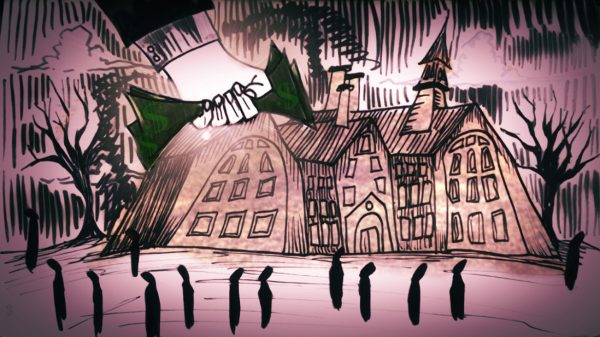Requiem for Melvin, the beaver
Ê
Thanks to Ben Plotzker for his piece about the beaver named Melvin that lived in the Centennial Woods area. We read the story with interest and a little sadness. Perhaps MelvinÕs demise will not be in vain if we can take advantage of BenÕs good work by using the story as a Òteachable momentÓ and try to extract some generalizable principles. We think the story raises several potentially important issues.
1) Natural areas like our own Centennial Woods are places where we can learn first-hand about nature and our relationship with it. They can inspire us like they did John Muir, Aldo Leopold, and Rachel Carson. All of us at UVM should use and help protect our wonderful system of natural areas, investing in them with equal measures of love and critical thought.
2) ThereÕs a spectrum of ideologies that can help guide resolution of environmental issues. For example, anthropocentric ideologies place emphasis on utilitarian values like the services nature provides to humans, while biocentric ideologies advance intrinsic values, suggesting equality between humans and nature.
Although seemingly contradictory, both of these ideological approaches have merit, and weÕve applied them across the landscape: cities where humans dominate, wilderness where nature takes precedence, and a broad spectrum in between.
Centennial Woods is home to elements of nature (like forests and beavers) and human utilities (like retention ponds and power lines), and so it exists somewhere in the middle of the anthropocentric-biocentric continuum. Such a position may warrant compromise and trade-offs to negotiate the competing objectives for which Centennial Woods is managed.
3) Resolution of environmental issues is part ideology and part facts. John Dewey, UVMÕs most famous graduate, advanced a pragmatic approach to thinking and decision-making. In this approach, ideology informs decisions, but it must be applied within the factual constraints of the case.
In the case of Melvin, he had taken up residence in a retention pond, a place built to store water for the purpose of controlling excess runoff and reducing associated environmental impacts like erosion and water pollution.
In light of these facts, we think itÕs reasonable that MelvinÕs self-interest may have to give way to the interests of the greater community.
4) ItÕs clear that some members of the UVM community had developed emotional bonds to Melvin and we are sympathetic. Love of nature has given rise to a powerful environmental movement and has helped sensitize society to matters of animal cruelty. But emotion and objectivity both demand consideration; weÕd like to ÒsaveÓ the beavers, but we also appreciate the functionality of the retention pond.
Thus, the Òbeaver deceiverÓ noted in BenÕs story strikes us as a desirable solution to management of beavers in Centennial Woods and the retention pond.
Its potential to balance anthropocentric needs for storm water management and biocentric desires for nature preservation mark it as a step toward a productive form of environmental pragmatism.
If this device can successfully regulate water levels in the retention pond (despite the best efforts of the beavers), then we hope beavers can be allowed to occupy this area.
A lot of people deserve credit for how this issue is being handled in such a civil manner. Teague OÕConnor and his students are using Centennial Woods in a productive, learning-by-doing approach that John Dewey advocated. Ben Plotzker cared enough about this issue to write an informed article.
The Cynic provided the mechanism to tell the student body about Melvin. Two stakeholders, Green Mountain Animal Defenders and John Aberth (a wildlife rehabilitator) played a constructive role as well. And two UVM administrators, Sal Chiarelli and Enrique Corredera, agreed to work with students on this issue.
Maybe this is the most important lesson of all: reasonable, caring people can work together to reach pragmatic solutions to contentious issues. We hope this might be a model for our highly polarized society and the resulting dysfunctional state of our national government.
Ê
Sincerely,
Ê
Bob Manning
Nathan Reigner
Park Studies Laboratory




![Can’t buy me [self] love](https://vtcynic.com/wp-content/uploads/2024/04/self-care-FINAL-600x398.jpg)






